Putin's breathtaking lies about Russia
March 19, 2014 -- Updated 1905 GMT (0305 HKT)
STORY HIGHLIGHTS
- Alexander J. Motyl: Putin describes both an aggrieved and aggressive Russia
- Motyl: He rewrites history, portraying Russia as a victim of the West and Communists
- Motyl: Putin says Russia has the right to be a bully, dismisses its previous abuses
- Motyl: West must hold him to his statements that he wants peace with Ukraine
Editor's note: Alexander J. Motyl is professor of political science at Rutgers University-Newark. He was associate director of the Harriman Institute at Columbia University from 1992 through 1998. A specialist on Ukraine, Russia and the former Soviet Union, Motyl is the author of six academic books and several novels, including "The Jew Who Was Ukrainian," "My Orchidia" and "Sweet Snow." He writes a weekly blog on "Ukraine's Orange Blues" for World Affairs Journal.
(CNN) -- Vladimir Putin's gala address before Russian parliamentarians and officials Tuesday surprised no one when he announced Russia's annexation of Crimea. The interesting part was his distorted view of Russian history, and his proclamation that a bizarre kind of simultaneously aggrieved and aggressive hyper-nationalism is now Russia's official ideology.
In discussing Ukraine, however, Putin seemed to go out of his way to suggest he had no aggressive intentions and was not planning to divide the rest of the country.
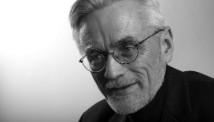
Alexander J. Motyl
Listening to Putin, one could easily forget that Russia is and for many centuries has been the largest country in the world and that it acquired its territories by imperialist expansion often accompanied by genocide and ethnic cleansing.
Instead, Putin prefers to see Russia as having been permanently on the defensive, a victim of both Western and Communist machinations: "In a word, we have all the reasons to believe that the notorious policy of containing Russia, which was pursued in the 18th, 19th and 20th centuries, is continuing to this day.
"They are constantly trying to drive us into some corner, because we have an independent position, because we defend it, and because we call things by their names and are not hypocrites," he said.
After the Russian Revolution of 1917, according to Putin, it was the turn of the Bolsheviks to aggrieve Russia. Putin conveniently ignores that the vast majority of Bolsheviks were Russian and that the party Lenin founded was institutionally Russian as well. No matter.
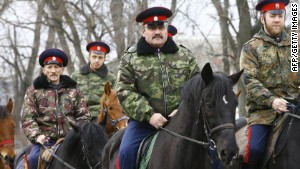
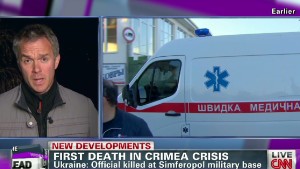
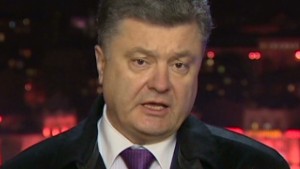
Putin says: "The Bolsheviks, for a number of reasons -- may God judge them -- added large sections of the historical South of Russia to the Republic of Ukraine. This was done with no consideration for the ethnic makeup of the population, and today these areas form the southeast of Ukraine. Then, in 1954, a decision was made to transfer Crimean Region to Ukraine. ... What matters now is that this decision was made in clear violation of the constitutional norms that were in place even then."
Once again, Putin's historical myopia is breathtaking: Nikita Khrushchev's decision to grant Crimea to Ukraine was as constitutional as anything any Soviet Communist leader did in the entire period of the USSR's existence. The Soviet Union rested on illegality and the systemic violation of human and civil rights. If Khrushchev was wrong, then that's only because the USSR was wrong and should never have been created in the first place.
Unsurprisingly, there is no room in this narrative for the nation that Russian imperialism almost managed to annihilate -- the Crimean Tatars. Russia conquered the Crimean Tatar khanate in 1783. Afterward, the Russian authorities forced the Tatars out of their ancestral homeland and replaced them with settlers from Russia.
Tens of thousands of Tatars died or were killed; some two-thirds had to leave the Crimea. In 1944, the ethnic cleansing was completed when Stalin expelled the entire Crimean Tatar population -- about 200,000 people -- to Uzbekistan and some other Soviet regions. About half died on the way. It was only in the late 1980s that they began returning to their homeland to find that their land and their homes had been occupied by Russian settlers.
Instead, Putin primarily explains why Crimea matters to Russia: "The graves of Russian soldiers whose bravery brought Crimea into the Russian empire are also in Crimea. This is also Sevastopol -- a legendary city with an outstanding history, a fortress that serves as the birthplace of Russia's Black Sea Fleet ... symbolizing Russian military glory and outstanding valor."
And what of the Crimean Tatars? Here's Putin: "True, there was a time when Crimean Tatars were treated unfairly, just as a number of other peoples in the USSR. There is only one thing I can say here: Millions of people of various ethnicities suffered during those repressions, and primarily Russians."
The mendacity is astounding. The Crimean Tatars were not just "treated unfairly" by some vague force. They were subjected to genocide by a Russian totalitarian empire. Russians also "suffered," but the brunt of the suffering fell, as Yale historian Timothy Snyder describes in "Bloodlands," on Poles and Ukrainians.
Despite all this victimization, Putin's speech loudly asserts that Russia is back: It's mad as hell and it won't take being humiliated anymore. This Russia, the new Russia, is both victim and bully:
"Today it is imperative to end the hysterics and to renounce the rhetoric of the 'Cold War,' and to recognize an obvious thing: Russia is an independent and active participant in international life, and it has, like other countries, its national interests, which must be acknowledged and respected."
And then, remarkably, Putin adopts a conciliatory tone with respect to Ukraine. Naturally, he first denounces the new democratic government as illegitimate and in the thrall of imaginary fascists and asserts Russia's obligation to help defend Russians and Russian speakers from their supposed assaults and predations.
Here's the soft and fuzzy Putin:
"I appeal to the people of Ukraine. I sincerely want you to understand us: Under no conditions do we wish to bring you harm, to insult your national feelings. We have always respected the territorial integrity of the Ukrainian state. ...
"Don't believe those who terrify you with Russia, who shout that other regions will follow Crimea. ... We want Ukraine to be a strong, sovereign and self-sufficient state. ... We want peace and amity to come to the land of Ukraine, and together with other countries we are ready to provide full cooperation and support to that end. But I repeat: Only the citizens of Ukraine are able to bring order to their own home."
If these words were sincere, then they may mark a significant departure from the war-mongering rhetoric Putin employed at his March 4 press conference, where he stated he "wasn't worried" by war with Ukraine. Indeed, if sincere, Putin has clearly stated that he will not invade the rest of Ukraine and attempt to annex some of its southeastern provinces.
Is Putin being truthful, or is the speech a smoke screen for further aggression? We don't know, of course, but now that Putin has gone on record as having nothing but peaceful intentions toward Ukraine, the international community would do well to remind him of that whenever the temptation to rattle sabers on Ukraine's borders and foment trouble in Ukraine's southeast proves too strong for him to resist.
The opinions expressed in this commentary are solely those of Alexander J. Motyl.
We recommend
From around the web
For the Sophisticated Tourist(Paris France vacation apartment (flat) rentals and tourist accommodations.)
March 18, 2014 -- Updated 2118 GMT (0518 HKT)
Jay Parini says once again Gallup finds Vermonters least religious. But they are spritual seekers with faith bound up in their fellow humans and the world around. Is that not Godly?
March 19, 2014 -- Updated 1637 GMT (0037 HKT)
Eric Liu says the criminal justice reform suggests a way forward for our politics: crosspartisanship
March 17, 2014 -- Updated 2031 GMT (0431 HKT)
Alexander Motyl says as Russian troops mass on their border, many Ukrainians think it's inevitable that Putin will order an invasion and war will break out
March 18, 2014 -- Updated 1336 GMT (2136 HKT)
Malaysian Prime Minister Najib Razak told reporters over the weekend that "deliberate" action by somebody on board accounted for Malaysia Airlines Flight 370 veering off course.
March 19, 2014 -- Updated 1149 GMT (1949 HKT)
Facing litigation over the recall 1.6 million vehicles with faulty ignition switches that may have led to fatalities,GM is proferring an interesting defense, says Danny Cevallos
March 19, 2014 -- Updated 1535 GMT (2335 HKT)
A fleet of tiny satellites released from the space station could help solve future aviation mysteries like the disappearance of Malaysian Airlines Flight 370, said retired astronaut Chris Hadfield
March 17, 2014 -- Updated 1615 GMT (0015 HKT)
Frida Ghitis says the spectacle of Russia swallowing pieces of a neighboring country while claiming to defend its people would make George Orwell grimace with recognition.
March 19, 2014 -- Updated 0646 GMT (1446 HKT)
At the TED conference, an anti-corruption crusader called for exposing the true owners of corporations and an anti-surveillance advocate argued against invading privacy
March 16, 2014 -- Updated 1502 GMT (2302 HKT)
Robert Goyer says only a professional pilot can program changes to a plane's route pathways. Malaysia 370's odd flight pathways didn't happen by accident
March 18, 2014 -- Updated 1245 GMT (2045 HKT)
Gayle Sulik and Bonnie Spanier say the benefits of regular mammograms have been greatly exaggerated and the hazards largely ignored
March 17, 2014 -- Updated 1133 GMT (1933 HKT)
Harry Belafonte and Mathilde Krim say Uganda's anti-law sends a population at high risk for HIV/AIDS into the shadows; the U.S. must show its disapproval by redirecting funds
March 18, 2014 -- Updated 1652 GMT (0052 HKT)
John Sutter asks readers to help him create a list of "must-reads" on wildlife trafficking for Change the List
March 17, 2014 -- Updated 0235 GMT (1035 HKT)
Peter Bergen says the most plausible explanation is that someone commandeered Malaysia Flight 370.
March 18, 2014 -- Updated 1337 GMT (2137 HKT)
Reince Priebus marks a year of changes at the Republican National Committee having created a continuous ground game and changing how primaries, debates will run
March 18, 2014 -- Updated 1337 GMT (2137 HKT)
As TED turns 30, June Cohen traces the organization's arc from closed conference to an open platform for spreading ideas
March 13, 2014 -- Updated 2159 GMT (0559 HKT)
Peter Morici says Europe must move quickly to develop its natural gas and oil industries to leverage with Russia.
March 15, 2014 -- Updated 1726 GMT (0126 HKT)
Jane Velez-Mitchell says it might sound crazy, but bear with her while she explains how abuse of animals on factory farms is tied to many of our problems.
March 14, 2014 -- Updated 1320 GMT (2120 HKT)
Donna Brazile says Democrat's loss in the Florida special election was closer than expected.
March 14, 2014 -- Updated 0253 GMT (1053 HKT)
Sylvia Adcock says sometimes, the crash site is never found. The search area for the Malaysia Airlines flight continues to expand — which experts say does not bode well for finding the plane.
March 14, 2014 -- Updated 1224 GMT (2024 HKT)
David Slayton, Mark E. Rosen: With Russia on the move, U.S. Arctic policy needs to look more at security issues.
March 13, 2014 -- Updated 1450 GMT (2250 HKT)
Les Abend says baffling as the lack of information on Malaysia 370's fate is, if the airplane fell out of the sky, it didn't happen as a result of only one factor
March 13, 2014 -- Updated 1602 GMT (0002 HKT)
Andrea Purse says if Republicans want to win over women voters, they need to see them as drivers of economic growth.
March 12, 2014 -- Updated 2107 GMT (0507 HKT)
Jim Martin says many of Pope Francis' words and deeds that have so surprised the world flow naturally from his Jesuit background
March 13, 2014 -- Updated 1210 GMT (2010 HKT)
Ruben Navarrette says deportees' attempt to gate-crash into the U.S. turned into "Operation Return to Sender."
March 13, 2014 -- Updated 1153 GMT (1953 HKT)
LZ Granderson says Beyonce's new video "Partition" sends a troubling message to girls who see her as a role model
March 13, 2014 -- Updated 1545 GMT (2345 HKT)
Michael Oren says the rocket attacks by Islamic Jihad could trigger a bigger confrontation in the volatile Middle East.
March 13, 2014 -- Updated 1125 GMT (1925 HKT)
Justin Bieber was videotaped acting like a brat at his deposition. Danny Cevallos warns him that you only hurt yourself when you bicker with the questioning attorney.
March 12, 2014 -- Updated 1145 GMT (1945 HKT)
Jonathan Guryan and Jens Ludwig say the idea that poverty keeps adolescents from thriving academically is upended by a Chicago tutoring program that shows why educators shouldn't give up
March 11, 2014 -- Updated 2044 GMT (0444 HKT)
Peter Bergen says wild theories often flourish after a passenger jet disaster; it's best to wait for an investigation
Most Popular
Today's five most popular stories
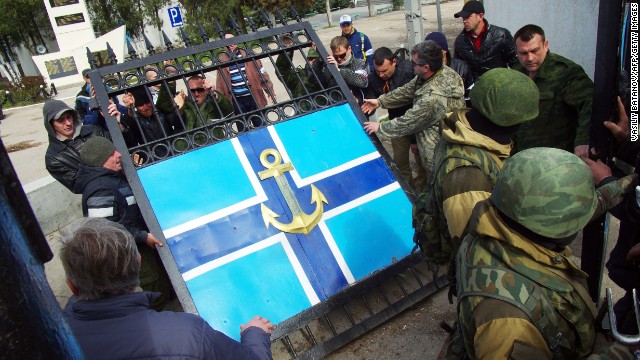 Pro-Russian protesters remove the gate to the Ukrainian navy headquarters as Russian troops stand guard in Sevastopol, Crimea, on Wednesday, March 19. Russia's military activities in Crimea and its move to annex the region have been condemned by Ukraine's interim government in Kiev, the European Union and United States. The standoff has sparked an international crisis, reviving concerns of a return to Cold War relations.
Pro-Russian protesters remove the gate to the Ukrainian navy headquarters as Russian troops stand guard in Sevastopol, Crimea, on Wednesday, March 19. Russia's military activities in Crimea and its move to annex the region have been condemned by Ukraine's interim government in Kiev, the European Union and United States. The standoff has sparked an international crisis, reviving concerns of a return to Cold War relations.













































No comments:
Post a Comment